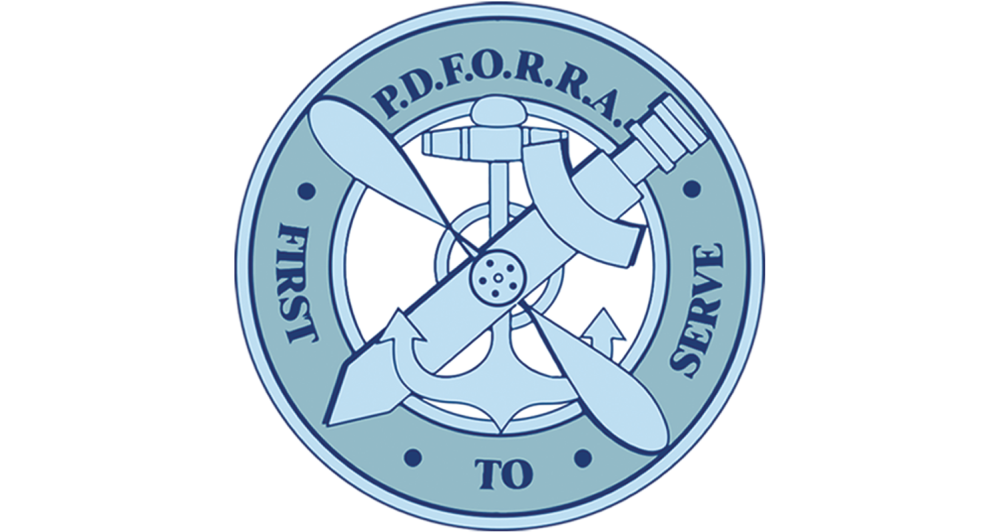
David Buckley and Brian Kavanagh, Naval Service delegates at the PDForra annual delegate conference in Trim, Co. Meath, yesterday. The navy allowance hasn’t been subject to an upward review since its introduction in 1975. Photo: Moya Nolan
An urgent increase in a navy allowance is needed to help retain people amid the ongoing personnel crisis in the service, while highly skilled technicians across the Defence Forces are not getting the wages to match their skillsets.
PDForra delegates, representing 6,500 enlisted members in the Defence Forces, passed a motion calling on the government to address the current rates of navy pay, an allowance that hasn’t been subject to an upward review since its introduction in 1975.
“The naval service has a widely publicised problem regarding retention and recruitment. Failures to remunerate personnel appropriately is at the core of the problems we're having,” PDForra president Mark Keane said.
He said this isn't the first time in its history the navy has suffered from recruitment and retention difficulties as, in 1975, the special allowance was introduced to attract people into the force.
“It was designed to compensate personnel for the vagaries that go along with membership of the naval service. These disadvantages included the fact that there's only one base in the country and membership of the navy brings with it unique challenges,” Mr Keane said.
At the time of its introduction, the allowance represented 20% of basic pay. Mr Keane said over time the premium has reduced significantly to a point where it's now “a cursory sum.” In 1975, the payment represented 8.15% of basic pay. By 1989, it represented 4.53% of basic pay.
In 2019, when PDForra made its submission to the Public Service Pay Commission, the rate represented 3.73% of the basic pay of an Able Seaman. Mr Keane said with improvements in basic pay that PDForra has secured over the past number of years, the percentage relativity of the allowance to basic pay has dropped even further.
“If we truly wish to keep the ship afloat, allowances that incentivise service in the navy must be improved upon,” he added.
Meanwhile, PDForra general secretary Gerard Guinan said current rates of pay for many cohorts of technicians are “simply not enough” and an urgent review is required to retain these highly skilled staff.
“The current technician scale was initiated following the Report of the Gleeson Commission in 1990. While the rates have increased over time in accordance with general pay movements, the underlying technical skills and marketability of these is not reflected in the current rates,” Mr Guinan said.
"The Department of Defence were hamstrung by public sector pay policy while undertaking the latest review of technician pay, which allowed for certain technician’s skills and marketability to be recognised through increasing their grading. This gave certain grades higher pay, but those at the top of the scale were not provided with an increase."
He said the failure to provide an increase at the top of the scale for personnel who were there already resulted in multiple problems, including personnel not assuming higher responsibilities, not taking up courses for increased grading and departing to civilian employment.
“In a workspace becoming increasingly technical, the loss of highly skilled and experienced staff will result in mistakes being made and work not being completed or undertaken," Mr Guinan said. He said failure to provide increases will result in more and more gaps in capability and further outsourcing "at considerable cost to the Exchequer".

